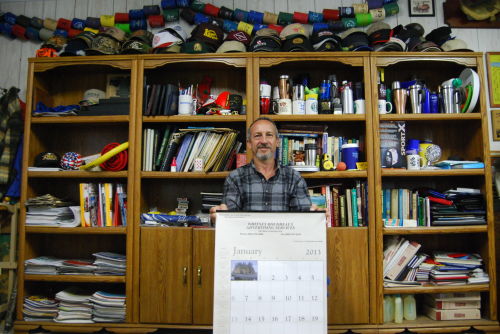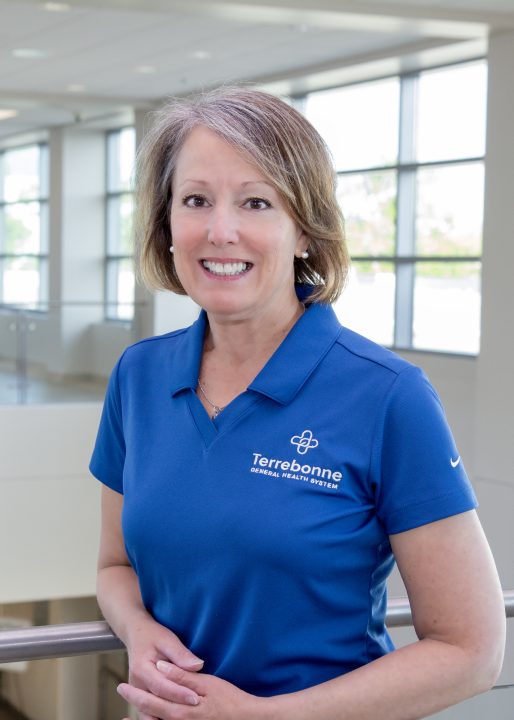
Through pain and recession, ad service continues
March 26, 2013
Charles Page & Sons passes the 70 year mark
March 26, 2013To work on vessels, employees must pass licensing tests and adhere to federal regulations. Because the knowledge is esoteric, there’s a market for simplifying the information.
Marine Education Textbooks, as a publisher and wholesale supplier of maritime textbooks and other ship necessities, has operated in the tri-parish area for more than 40 years doing just that.
Many mariners-in-training did not graduate high school and thus have sub-par reading comprehension skills, so Marine Education founder Capt. Richard Block tries to assist certification-seekers by diluting nuanced and subtle test questions to their basic cores, he said.
“We write the books to train the mariners to work on the boats,” said Block, who has his 1,600-ton master’s license. “I like to say edited, because we borrow things, compile material. … The books use Coast Guard questions and answers, which we explain in detail.”
The Coast Guard has a pool of 25,000 questions and answers for deck and engine licenses, for example. Marine Education focuses on questions dealing with vessels less than 1,600 tons, then separates the questions by topic and subject – all on paper – before systematically breaking down the questions independently.
For 42-plus years, Block has wrangled with the Coast Guard over disclosing its pool of licensing test questions and answers. Block and his business, Marine Education Textbooks, saw the pool released after invoking the Freedom of Information Act more than 20 years ago.
More recently, he was outspoken when the Coast Guard pulled the questions from the public’s purview in 2010. Two years later, after a Supreme Court decision not explicitly related to the Coast Guard, the questions and answers were again posted online.
“I don’t think they like me for that, and I couldn’t care less,” Richard said. The textbook editor said the importance in knowing the material is to verify accuracy and understand what issues regulators view as important, which trump concerns that people are memorizing questions and answers. “This impacts people’s careers,” he said.
Richard moved to Louisiana from Long Island, where the students he taught social studies were the same age (seventh through 12th grade) as many dropouts.
He opened Marine Education in Morgan City in 1970 and moved to Houma by 1972. His wife Gwen, a New Orleans native, joined the team in 1976, and the wedded pair have operated out of their current office on North Van Avenue since 1978.
Richard said his teaching experience helped familiarize himself with the reading comprehension levels of similarly developed men and women and that this knowledge helps him when writing the books.
“When you come to a word that needs explanation, either it’s a technical term or some big English word that they can’t understand or won’t understand if you have a fourth- or fifth- or seventh-grade education,” Richard said. “This is the reason I’m down here.”
Gwen handles the numbers side of the business, such as billing, inventory, payroll and taxes. Her office is next door to the printing room, where Richard’s books are perfect-bound with light-blue covers.
Marine Education Textbooks, which employs five people, sells approximately 70,000 books – mostly wholesale – each year. Customers are scattered throughout the country, though many are local.
The business is not limited to study-guide textbooks. Marine Education also publishes and sells materials legally required to be on board, such as logbooks, charts, stenciled labels and stickered regulations.
The Blocks’ best-selling item is their garbage record book, written by Richard. In addition to serving as a mandated logbook for waste, it converts the standard metric – cubic meters – into something easily identifiable – garbage bags – to ease the tracking.
Marine Education sells large charts encompassing the entire Gulf of Mexico; it is the only National Oceanic and Atmospheric Administration-certified chart sales agent in Houma, Richard said.
But the Blocks’ primary purpose is to ensure men and women seeking licenses for vessels less than 1,600 tons are treated “with the respect that they deserve,” Richard said.
Richard is the secretary, and Gwen the treasurer, for the National Mariners Association, which aims to provide coordinated voice for non-union mariners on sub-1,600-ton vessels.
They don’t focus on licensing requirements for unlimited vessels or the varying levels of mates “because those are all college people,” he said.
“We want to be sure that we are treated separately because most of our people are not college people,” he said. “What I’m saying here is not just true in Louisiana – it’s true in New York, it’s true in Alaska.”
Capt. Richard Block, editor of the blue books behind him that prep mariners for Coast Guard licensing tests, said his job is important because he helps people understand what they have to do to get work and he helps keep licensors honest.










